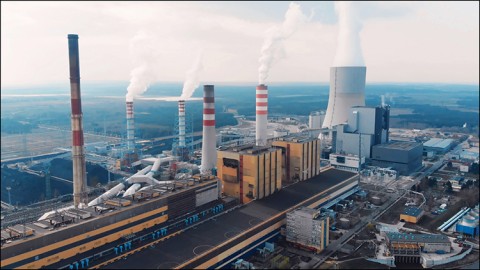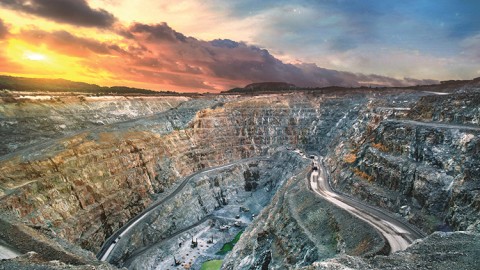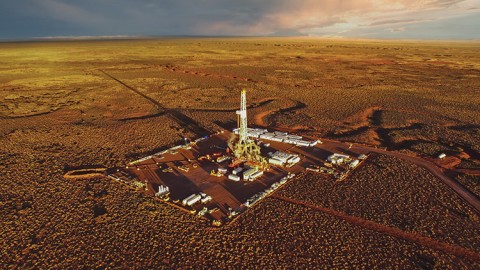To begin with, the natural gas investment climate as of Q1 2021 has proved to be a financial opportunity that cannot be ignored for both the upstream and downstream sectors. The trend in natural gas popularity has changed dramatically between 2019 and 2021; starting with a low-sloped rise, continuing with a plateau and eventually exponentially increasing at present. However, before further analyzing the current state of the financial market, it is important to understand the journey that led to the present day interest in natural gas.
The Evolution of Natural Gas
First of all, it is crucial to identify the overall situation in the market and the financial implications associated with the pandemic in terms of the oil and gas sector’s interest in natural gas. This includes assessing the development of natural gas throughout the course of the pandemic. To be specific, the International Energy Agency (IEA) categorized the interest in the investment of natural gas into three main phases; the first phase which took place in 2019 is referred to as the ‘cool down’ phase, the second phase which took place in 2020 (i.e. during the first and second wave of the COVID-19 pandemic) is referred to as the ‘meltdown’ phase, while the current phase leading to the future (i.e. between 2021 and 2025) is referred to as the ‘rebound and beyond’ phase.
More specifically, the first phase (or the ‘cool down’ phase) is based on the fact that the total consumption of natural gas increased by nearly 70 billion cubic meters (bcm) in 2019 alone. However, this global increase mainly occurred in markets located mostly in South East Asia. While the Middle East continued to see strong signs favoring the demand for natural gas due to the high demand for Electricity, Egypt was different. In fact, the natural gas trend in Egypt reached a near plateau that was surprising to local markets; this was especially after exponential increases in natural gas consumption during the two years prior.
Furthermore, the second phase (or the ‘meltdown phase’) is namely based on the impact of the global pandemic as the world began to shut down and undergo lockdown procedures during mid Q1 2020. During this phase, the natural gas sector – as well as the oil and gas sector overall –faced what is now referred to as an ‘unprecedented macroeconomic shock’. By Q2 2020, it was found that the consumption of natural gas had dramatically decreased by nearly 7% (in terms of year-on-year calculations) as a result of the lockdown and its respective negative impact on the global Gross Domestic Process (GDP).While Africa took the smallest hit at less than 5% decrease in natural gas demand, Europe had the worst impact at over 45% decrease in natural gas demand, in terms of bcm.
Natural Gas Investment Climate
Based on the trends of the past, economic experts predict the natural gas market will change for the better in the long run, with high demands and better opportunities for investments. At a time when the oil and gas sector found that the demand for oil products hit an all-time low, natural gas becomes an affordable and reliable option that is more readily available – in terms of infrastructure – than renewable energy (which would require more time and additional investments before being able to immediately replacing oil and gas alternatives).
An oil and gas Financial Expert, who prefers anonymity, has noted that “Renewable Energy is becoming a very interesting topic even within the oil and gas sector, but Renewable Energy technologies do not have the same level of infrastructure that crude oil has, for example.” The Financial Expert further explained this point by adding that “the interest in natural gas will still be a lot but not as much as when crude oil begins to be in demand again after the pandemic ends. When that happens, the energy sector will make crude oil, and in the case for Egypt, natural gas, a top priority.”
At the moment, there are many reasons as to why there is astrong interest in investing in the natural gas market. The demand for natural gas is projected to nearly double by 2035 and then doubles that amount again by 2050, thus creating leverage for investments in the energy source. Recently, Egypt has signed multiple agreements with International Oil Companies (IOCs) and National Oil Companies (NOCs) in hope to be able to further encourage international investors for investment opportunities as Egypt continues its aspiration to become a regional gas hub. With nine exploration agreements signed in the first week of 2021 alone, Egypt continues to meet its goal through its local discoveries. Thus, creates a turnaround despite the impact of the pandemic on the sector.
Advantages and Disadvantages of Investing Now
Of course, despite the slow but steady increase in the demand for natural gas that is expected to continue over the coming months, it is crucial to be reminded that the investment climate is still under the impact of the pandemic’s second wave. While the pandemic’s impact is becoming less and less adverse moving forward, its ripple effect will be sure to last for some years to come (as mentioned earlier, between 2021 and 2025) during the ‘rebound and beyond’ phase. Therefore, at such a sensitive time, it is crucial to identify the advantages and disadvantages associated with the current investment climate in the natural gas sector.
There are a number of advantages when it comes to investing in the natural gas sector at this time. For example, Egypt’s strategic location promotes dynamic foreign investments given its central location around some of the world’s largest investors (i.e. with the help of Ports). Secondly, despite Egypt having one of the region’s oldest and most developed oil and gas sectors, there remain several potential opportunities yet to be unearthed. Additionally, Egypt has invested (and continues to invest) in the necessary infrastructure to explore, discover, transport and refine both oil and gas products; this indicates Egypt’s readiness and potential to become a regional gas hub.
On the other hand, there are also a few disadvantages when it comes to investing in the natural gas sector given the current climate; the first being that the pandemic remains unpredictable and could take an unexpected turn in the opposite direction. Also, a considerable amount of investments have been directed towards renewable energy and green technologies, creating further competition for the sector in the long run. Additionally, the exploration and production phases are expected to take place over the coming years which would take a long time to finally see successful outcomes.
To conclude, the natural gas investments in Egypt take place with the aim of becoming a regional hub. The unprecedented macroeconomic shock of the pandemic has proven that nothing is set in stone. Despite this, there is no denying that Egypt is exerting all efforts to promote investments in the natural gas sector in the long run by drawing different investors (i.e. foreign, local, private sector etc.) to the even greater potential that Egypt has yet to untap.








